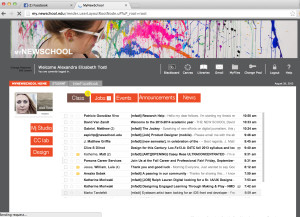Great Wall of Facebook:
The way Facebook has developed their search capabilities is interesting and definitely appealing because seeing search results that have been seen and shared by my friends is appealing but my internet browsing and searching isn’t something I necessarily would like to have public. This is, in my opinion, where Google pulls ahead in this area.
Natural User Interfaces are not Natural:
I think that the natural interfaces that this author suggests, specifically gestural, are very important in the future of technology because as we become more familiar and comfortable with technology, we begin to multitask more and more to satisfy our desire of efficiency. Gestural interfaces can make this easier. An important message that the author conveyed is that the gestural interfaces aren’t necessarily more natural but I do think that they are very beneficial.
“Why Bill Joy: The Future Doesn’t Need Us”:
One of the many ideas that Bill Joy mentions in this article is the idea that humans will replace themselves with technology and offers the example of computer devices implemented into human bodies. I like that Joy does not make the humans as victims, but as the ones deciding the future. We give ourselves up so that technology can take over. At this point in time we have GPS devices making sure we don’t get lost, we have spell check to correctly present our written thoughts, and we have fast and accessible search engines that can answer almost any question we may have. Another example of this that we will see more of in the future is Google’s self driving car, which makes humans completely redundant. All of these things are small examples of what Joy foresees but they are evident that we seem more than willing to give up part of what makes us human to acquire the digital edge.
The Web Means the End of Forgetting:
While discussing the inability to prevent others, employers for example, from viewing true non-slanderous material about you, Jeffrey Rosen suggests taking action by using technology. instead of suggesting the implementation of new laws, or carrying out lawsuits, Rosen suggests utilizing the object that causes the problem to provide a solution. Rosen calls upon the idea of Mayer-Schönberger that there should be expiration dates on digital personal information which is chosen ahead of time by each user for each piece of data being uploaded. This idea puts the user in control of the lifespan of their shared information.


Comments